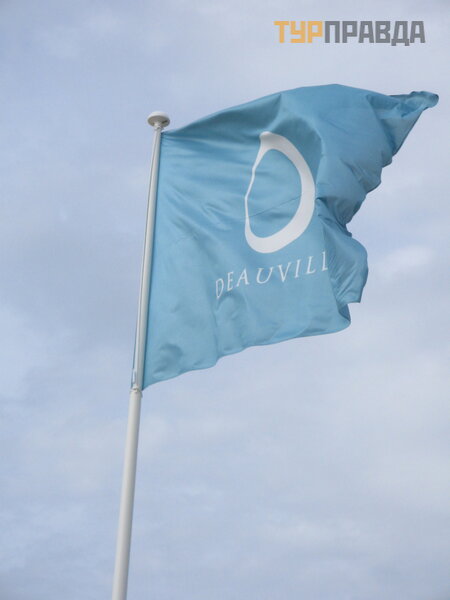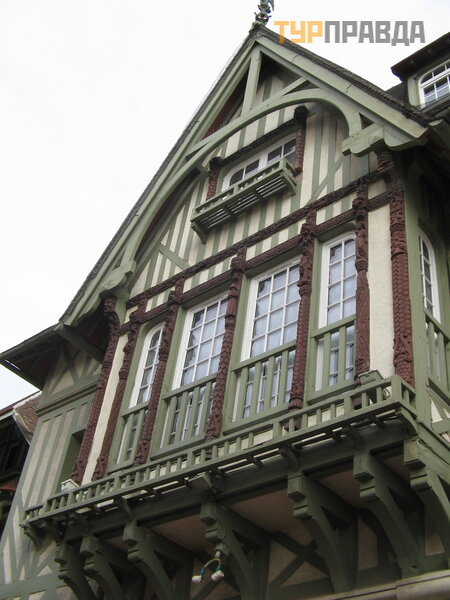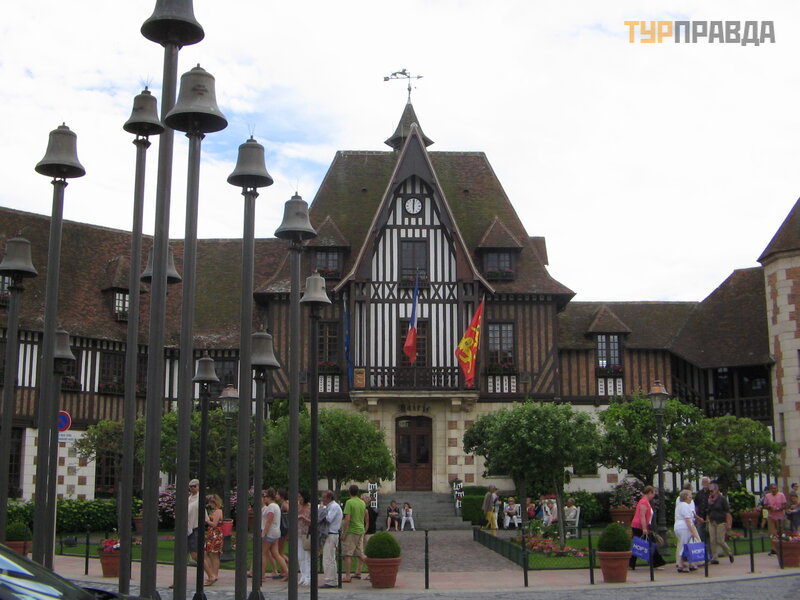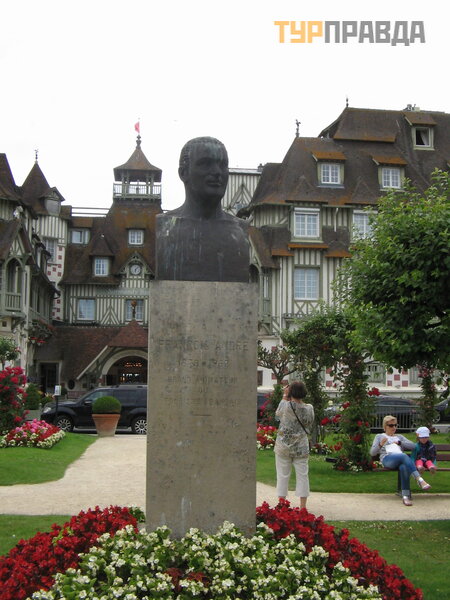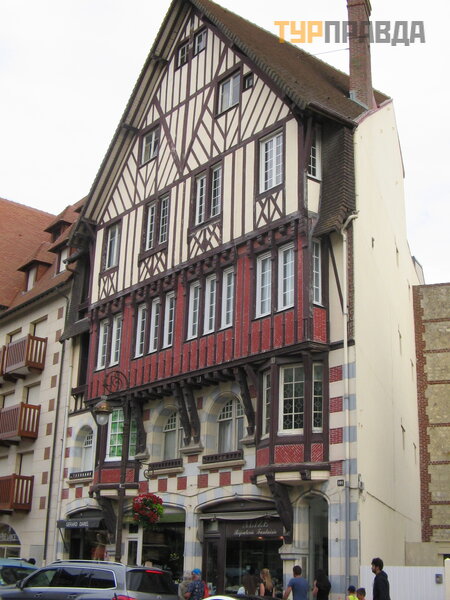The luxury of Deauville
Trouville-Dauville form, as it were, one settlement. After Honfleur we stopped at Deauville. I never dreamed of going there. But all tourists are brought there, showing this place along with Honfleur.
I strongly associated the city with a resort for the rich, but I do not like such places. This audience can interest me only when it shows social activity, and does not throw, apparently, easy-to-get money. On the beach there are booths with the names of mostly American actors (analogous to different stars, hands, etc. ) - a vanity fair.
About history. The second part of the word "Dauville" usually comes from the Latin "villa". The first is considered a proper name - according to one version, or a word meaning "wet meadow" (which is quite possible, because the place is low, swampy and flooded) - according to another (both are of Germanic origin). That is, in ancient times there could be an estate here that belonged to one of the Germans.
In the 17th century, these lands belonged to Louis XIV. He gave them to his son Marquis Lasse. He, courting the Duchess of Montpensier, built a castle to invite her there. But the lady who owned the lands in Honfleur did not come. Then the castle passed to the heirs of the Marquis, one of whom gave holidays here in honor of Madame de Barry. Later, the castle was sold, the new owner abandoned it. They say you can find the remains of that castle somewhere around the golf courses.
In the town there is a church of St. Lawrence with preserved elements dating back to the 11th century. Money for its restoration was given by Yves Saint Laurent. But it is far from the beach, not far from which we were dropped off and picked up from.
At the beginning of the 19th century, the first resort on the English Channel appeared (in Dieppe). By the end of the century, there were many more of them. At first, the neighboring Trouville became a resort. But fishermen lived there, so it was not prestigious to be there.
The beginning of a fashionable holiday in Deauville was the construction of a casino in Trouville. Riding on the waters began to be considered useful with the light hand of Dr. Olif, who was fashionable in those years, who invited his non-poor clients to come to Trouville to be treated with air. He bought land and started building. A society was formed, bankers were invited, and an architect was hired. The swamps began to be drained and villas were built in their place (no longer rural as in antiquity, but resorts). The aristocrats and bourgeoisie of the Second Empire came to the new resort of Deauville, starting with the Duke de Morny (a relative of Napoleon III, who made Biarritz fashionable), a former patient of Dr. Olif. The others followed them. The development of the resort was also facilitated by the appearance of the railway. The beach in Deauville is sandy, which is more pleasant for walking (at first, after all, they walked along the sea, and did not swim). Then they built their own casino in Deauville.
A break in development came with the fall of the Second Empire. Deauville was quiet. At the beginning of the 20th century, the mayor of the city lured the enterprising casino manager of Trouville to Deauville. Construction began on a new building that still exists today. At the same time, the hotels-palaces "Normandy" and "Royal" appeared. Casino managers successfully exploited French snobbery. Deauville becomes a "second Paris".
The second manager was Francois André , a tourism businessman. He gave a modern look to this expensive resort. Starting his career from the bottom, he then successfully developed casinos and luxury hotels in various places. He is considered the founder of modern tourism. His bust stands outside the Normandie Hotel, today owned by his heirs. It was thanks to him that a modern tourist center appeared: tourists live in hotels, surrounded by all kinds of recreation offered.
After that, the two cities of the now united canton were finally divided into two parts unequal in weight.
During the years of crisis and the Second World War, the resort calmed down again. But then he recovered in his former splendor of non-flashy luxury.
I was pleased that the modern houses in the town were built in the Norman spirit: half-timbered with mica (or imitation? ) black tiled roofs - this is the so-called neo-Norman style (the era of historicism in the architecture of the late 19th - early 20th century).
In September, Deauville hosts the American Film Festival. It was organized in 1975 with the support of the Barrier group (the owner of the city's luxury hotels). They also supported the jazz festival. At first, the film festival was not even a competition. It was more of a meeting place for directors and actors. Now it's an independent American film festival, with prizes.
